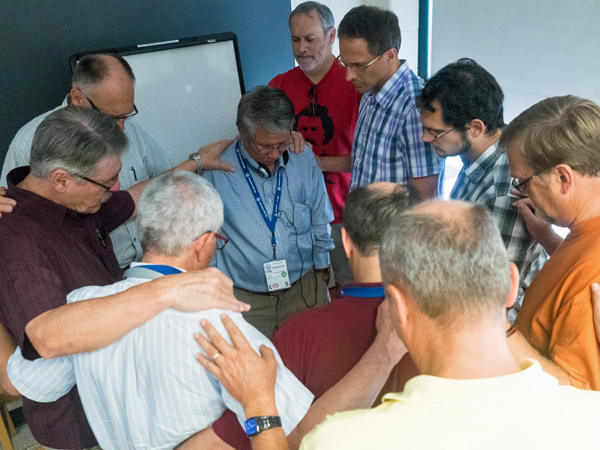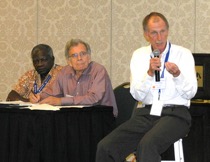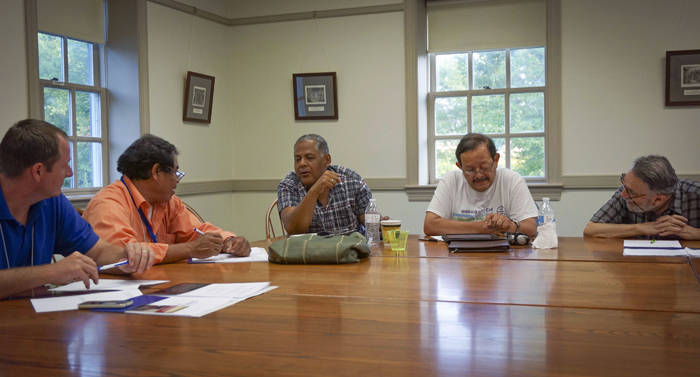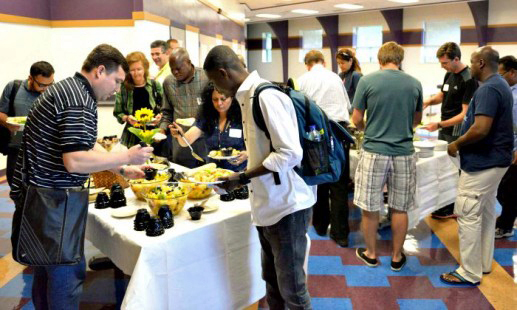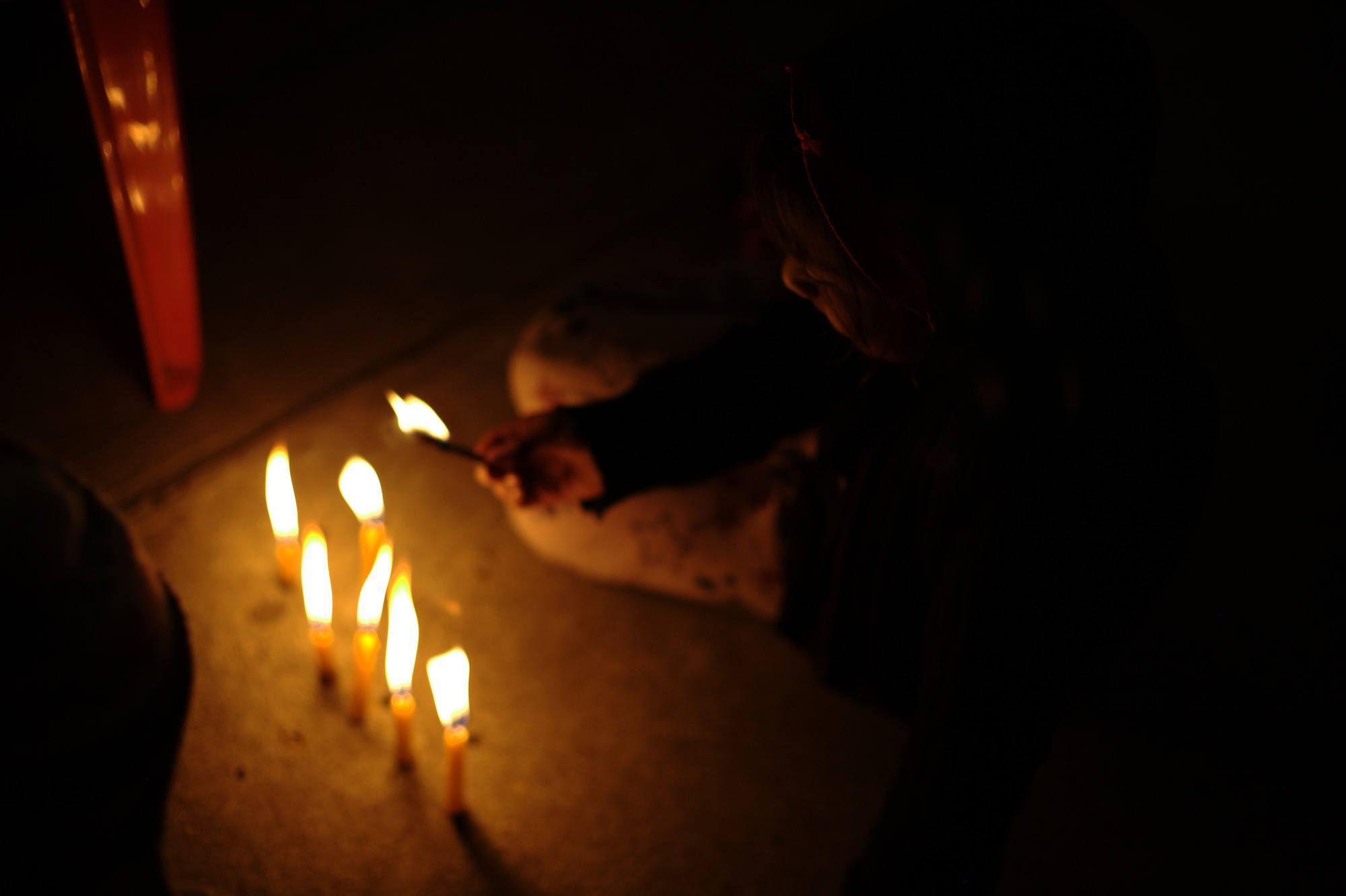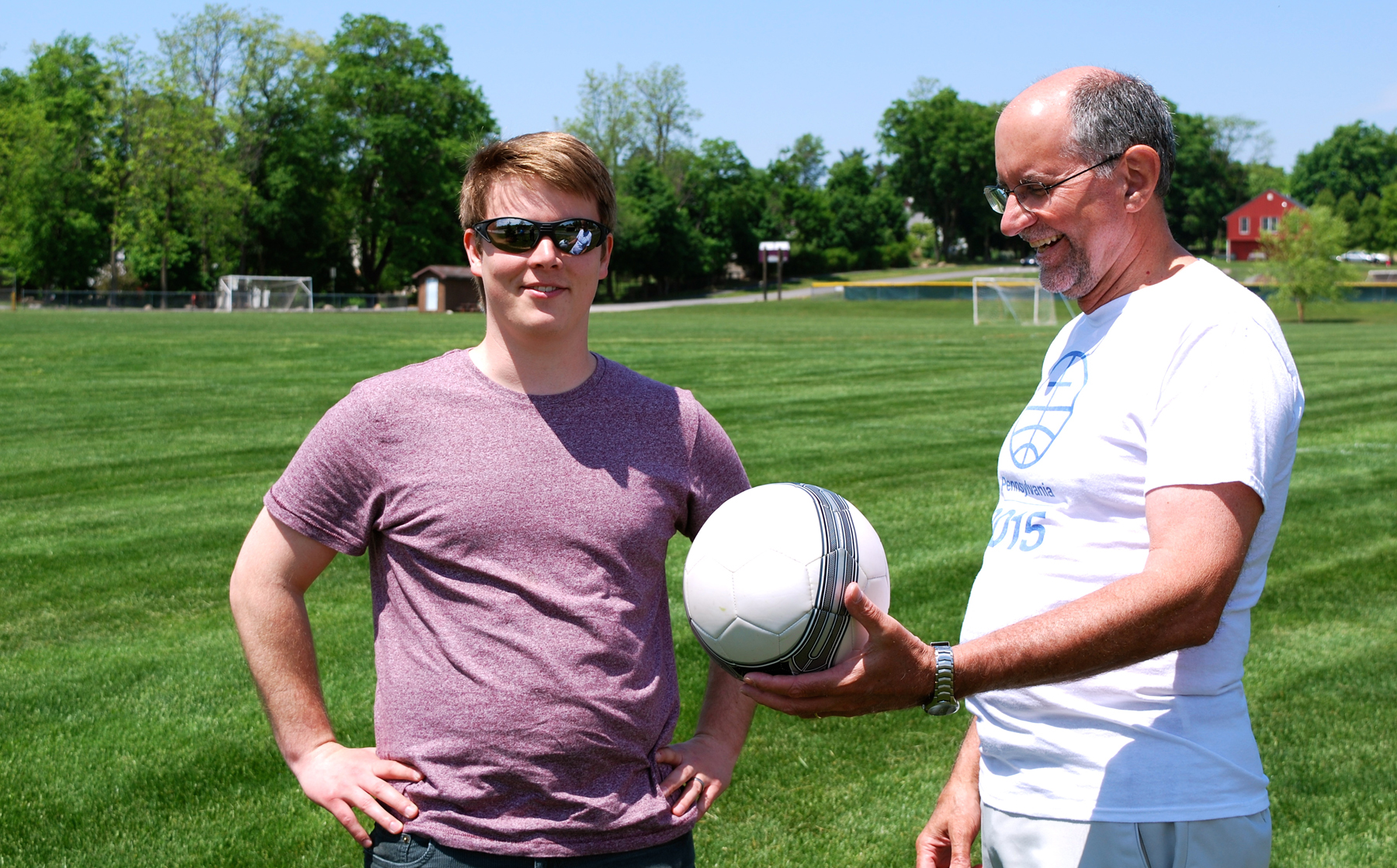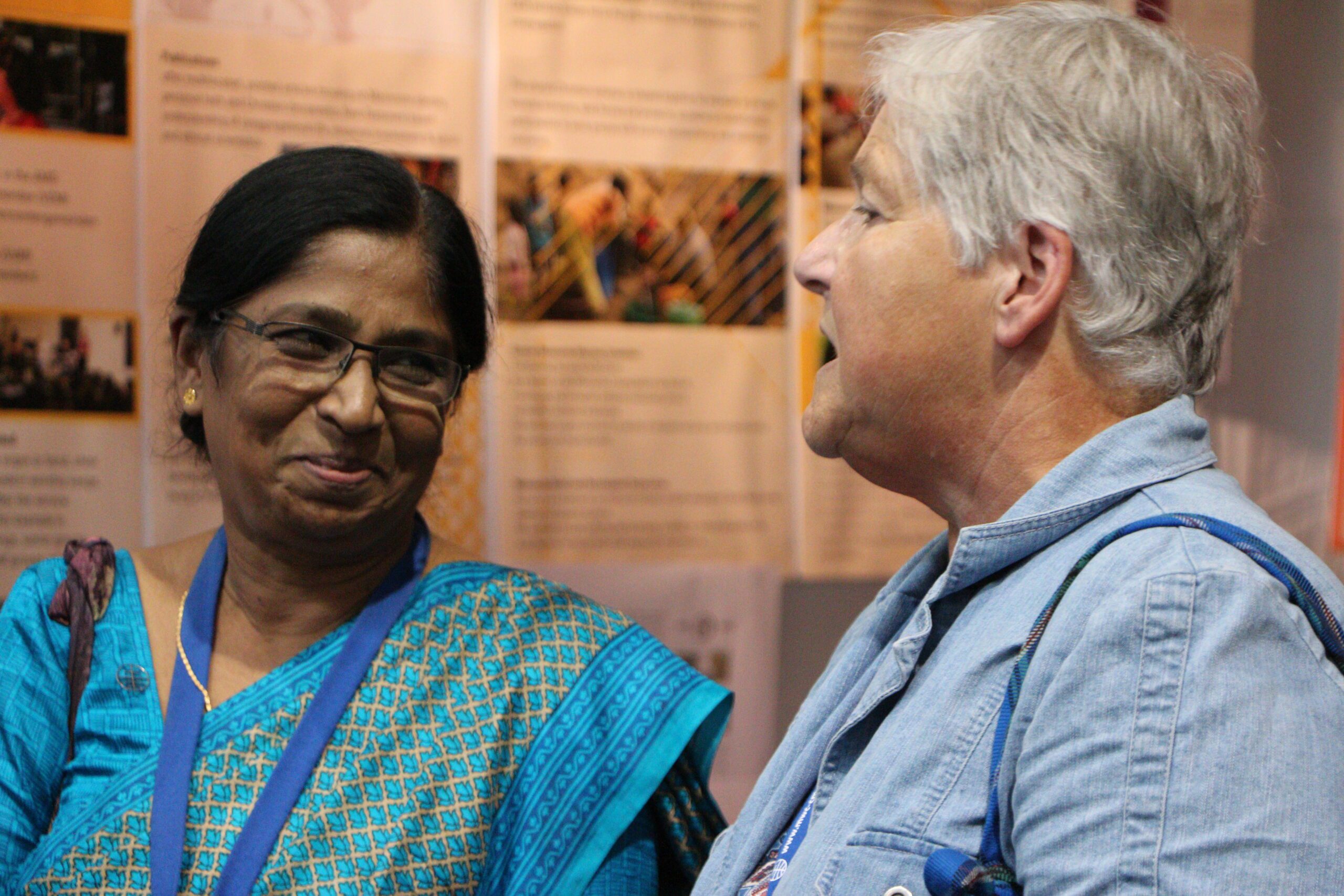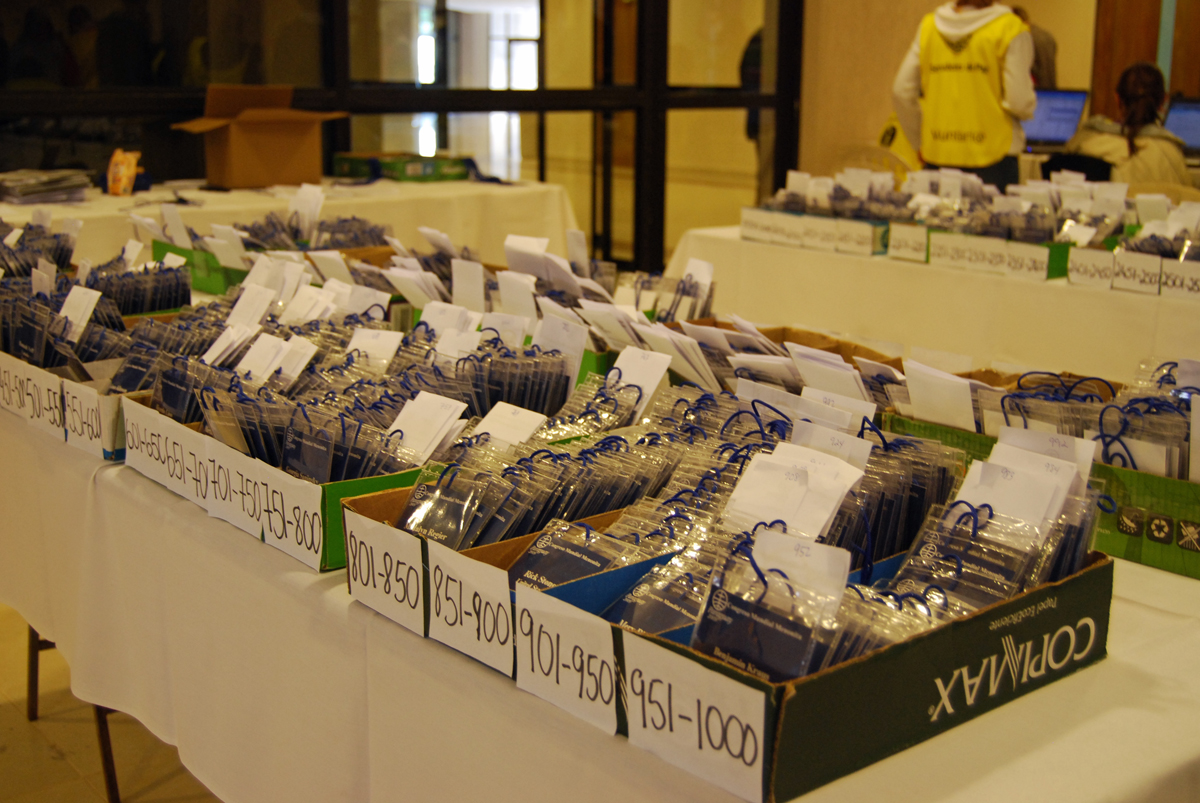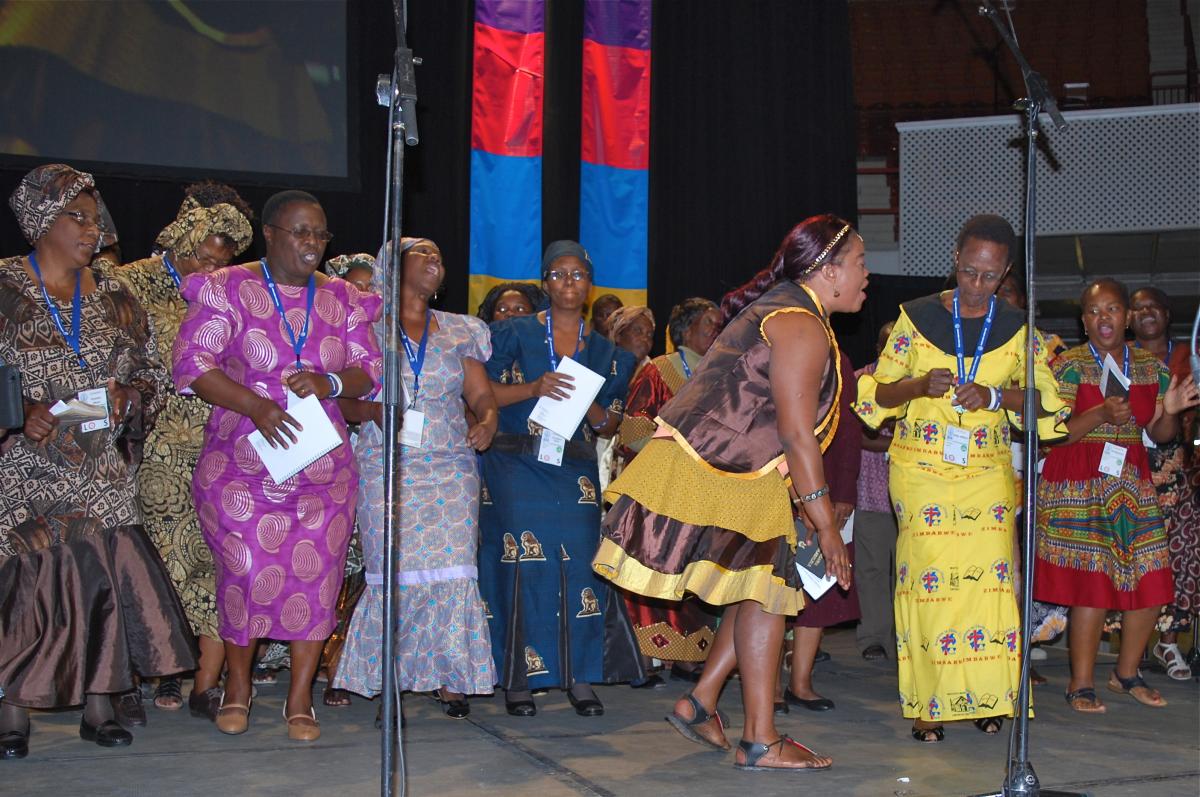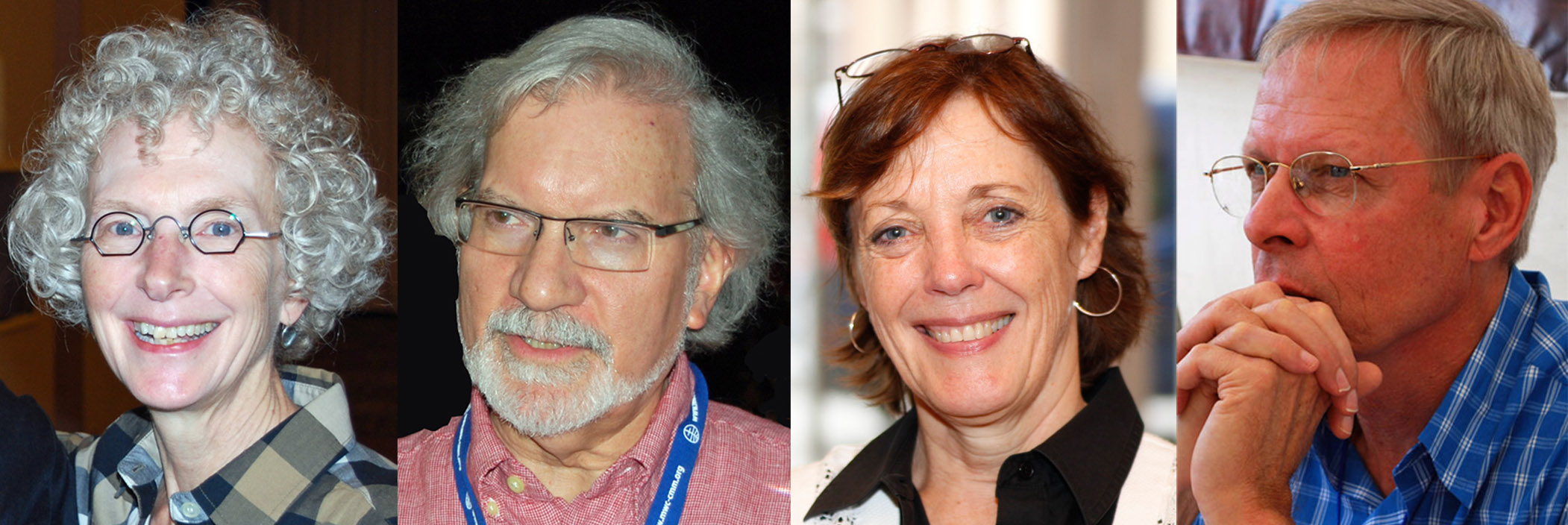-
Mennonite Brethren leaders meet following MWC Assembly
Delegates reappoint Wiebe, discuss “global elders” Mechanicsburg, Pennsylvania, USA — Representatives from 21 national Mennonite Brethren conferences from around the globe met for the International Community of Mennonite Brethren (ICOMB) annual summit 26–29 July 2015 at Messiah College in Mechanicsburg, Pennsylvania. The 2015 summit highlighted ways in which the 25-year-old organization has grown and is
-
A space to meet and exchange
Global Anabaptist Health Network envisioned by summit participants Harrisburg Pennsylvania, USA – More than 90 health care leaders from 18 countries met 19–20 July 2015, preceding PA 2015. They gathered to worship, learn from each other and think creatively about how Anabaptist-related health care organizations and those working in this field might cooperate more fully
-
Numbers convey unity despite diversity
Global Anabaptist Profile surveys and maps Mennonite World Conference GOSHEN, Indiana, USA — Sociological surveys may be uncommon evangelistic tools, but at a consultation celebrating the conclusion of the Global Anabaptist Project (GAP), Damien Pelende testified that the survey had drawn new people into his church. The GAP, a joint initiative of the Institute for
-
Like a tree planted
Anabaptist Educators from around the world gather for the Global Education Conference Lansdale, Pennsylvania, USA — Like a Tree Planted: Anabaptist Spirituality in Education, the Global Education Conference of Mennonite World Conference attracted more than 100 Anabaptist educators and leaders from 13 countries around the world. Anabaptist spirituality is “a pedagogy of transformation,” said John
-
We Cry (A prayer of lament)
We cry with those whose lands are ravaged from war. We cry with those who, because of war and violence, have already lost their home. We cry with those who leave behind what they know in search of a better life for their children and families. We cry with Abdullah, the father of Aylan and
-
First ever Anabaptist World Cup set for PA 2015
Harrisburg, Pennsylvania – The first ever Anabaptist World Cup will be played on the afternoons of July 22, 23, 24, and 25, as an optional recreational event during PA 2015, the Mennonite World Conference Assembly. The matches will take place at Logan Field, a community soccer field near Dillsburg, PA, about a 25-minute drive from
-
Dutch group awards MWC Deacons Commission chair
Anne Zernike was the first Mennonite woman ordained in the Netherlands, possibly in Europe and “even maybe in the world,” said Christien Duhoux-Rueb. She and Coot Winkler Prins, pastors from the Netherlands, highlighted Zernike at a workshop and with an award at PA 2015. Ordained at the Mennonite church in Bovenknijpe in 1911, Zernike was
-
Registration to stay open until Assembly; several options change after July 1
Harrisburg, Pennsylvania, USA – Organizers for the 21-26 July Mennonite World Conference Assembly announced recently that registration will remain open until Assembly, but only the following options are available online beyond 1 July: full time/shared registration without the meal plan for clusters 1 and 2, and part time registration. After 1 July, online registration for
-
Blessings and challenges for the PA 2015 Visa process
Harrisburg, Pennsylvania – The need for many to get visitor’s visas to the USA, to attend the Pennsylvania 2015 MWC Assembly in Harrisburg, has long been a concern for many planners and participants. For more than a year, the MWC Visa Task Force (VTF) has been making preparations. Now that it is April 2015, and
-
PA 2015 will be green!
Harrisburg, Pennsylvania – “PA 2015 will be green,” says Howard Good, National Coordinator of the Mennonite World Conference Assembly, to be held July 21-26 at the massive Farm Show Complex (FSC) in Harrisburg. Good had just received word that expenses for the green endeavour will fit the projected budget for the global event. Owned by
-
Departing staff and volunteers recognized at dinner event
Harrisburg, Pennsylvania, USA – At a dinner event immediately following the 21-26 July 2015 Assembly, Mennonite World Conference general secretary César García expressed appreciation to a number of staff members who are ending their work involvement with MWC. Merle and Phyllis Good were recognized for their service as communication consultants and fundraisers. Over the past
-
Visa efforts continue for PA 2015 hopefuls
Harrisburg, Pennsylvania, USA – Applying for a visa to enter the U.S. is serious business for many internationals hoping to attend PA 2015, the Mennonite World Conference (MWC) Assembly to be held here July 21-26. A Visa Task Force – with two members on the ground in Africa, one who moves between Africa and North
